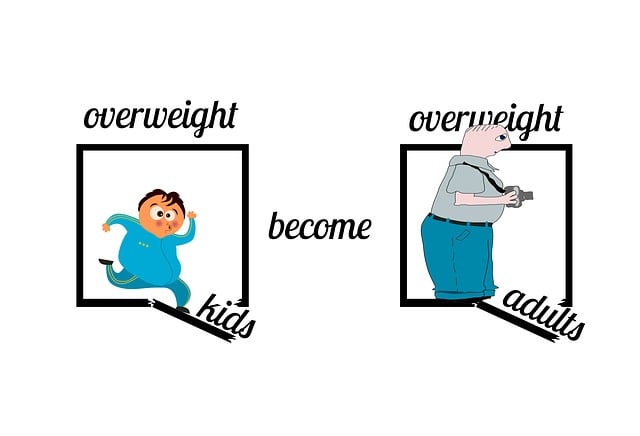
Did you know that childhood obesity is a growing concern worldwide, with an estimated 41 million children under the age of 5 being classified as overweight or obese?
Not only does childhood obesity affect a child’s physical health, but it can also impact their mental and emotional well-being.
As a parent, you play a crucial role in promoting healthy habits and preventing obesity in your child. So, are you ready to take action?
If so, you’ve come to the right place. In this article, we’ll explore some effective ways for parents to promote healthy habits and prevent childhood obesity. So, are you ready to learn more? Let’s dive in.
Understanding Obesity in Children
Obesity is a condition in which the body accumulates excessive body fat, leading to an increase in body weight beyond what is considered healthy for a person’s age and height.
The Centers for Disease Control and Prevention (CDC) defines childhood obesity as having a BMI that is higher than the 95th percentile for children of the same age and gender.
BMI is a measure of body weight in relation to height and is calculated by dividing a child’s weight in kilograms by their height in meters squared.
Health Risks of Childhood Obesity
Childhood obesity can have numerous consequences on a child’s health, both physical and mental.
Impact of Childhood Obesity on Physical Health
- Type 2 diabetes: Type 2 diabetes is a chronic disease that affects how the body metabolizes sugar and is more likely to occur in obese children.
- High blood pressure: Obesity in children can cause high blood pressure, which raises the chance of cardiac disease and stroke.
- Respiratory problems: Children who are obese are more likely to develop asthma and other respiratory issues.
- Sleep apnea: Obesity in children can cause sleep apnea, a disease in which breathing is disrupted while you sleep, leaving you exhausted and causing other health issues.
- Joint problems: Being overweight places extra strain on the joints, which can cause discomfort and mobility issues.
Psychological Impact of Childhood Obesity
- Low self-esteem: Children who are obese may experience low self-esteem due to negative stereotypes and discrimination against overweight individuals.
- Depression and anxiety: Childhood obesity has been related to greater instances of depression and anxiety in children.
- Social isolation: Obese children may be shunned from social events or experience bullying and teasing from peers, resulting in social seclusion and loneliness.
- Poor body image: Obese children may have a poor body image, leading to unhappiness with their looks and adding to low self-esteem.
- Eating disorders: Obese children may acquire disordered eating habits, such as binge eating or purging, which can contribute to further health problems.
To avoid these potential consequences and guarantee a healthy future for the child, it is critical to handle childhood obesity as early as possible.
Factors Contributing to Childhood Obesity
Childhood obesity can have multiple causes, including:
- Genetics: An obese family background can raise a child’s chance of becoming obese.
- Lack of physical exercise: Children who do not engage in regular physical activity are more likely to become overweight or obese.
- Poor diet: Sugary and refined food consumption can increase the risk of childhood obesity.
- Environmental factors: The environment in which a child lives can impact their risk of obesity, such as access to healthy foods and safe places to play and exercise.
- Medical conditions: Some medical conditions, like hormonal abnormalities, can make children more obese.
- Sleep habits: Poor sleep patterns, such as insufficient slumber or poor-quality sleep, can raise a child’s chance of obesity.
In order to successfully avoid and cure childhood obesity, it is crucial to address its underlying causes. This may involve making adjustments to the child’s nutrition and amount of exercise, educating them about healthy habits, and taking care of any underlying medical or environmental issues.
Tips to Prevent Childhood Obesity
Preventing childhood obesity can involve a combination of healthy lifestyle habits and environmental factors. Here are some tips for preventing childhood obesity:
Encourage a Balanced Diet
A balanced diet is essential for a child’s growth and development. As a parent, you can encourage your child to eat a variety of foods from each food group, including fruits, vegetables, whole grains, lean proteins, and low-fat dairy. Avoid processed and high-sugar foods, and instead offer healthy snacks like fruit, nuts, and low-fat yogurt.
Make Mealtime a Family Event
Eating as a family can help children develop good eating patterns and positive connections with mealtimes. Make eating together as a family a peaceful and pleasant experience at least once a day. Encourage your kid to try new cuisines by involving them in dinner planning and preparation.
Encourage Physical Exercise
Physical exercise is essential for a child’s physical and emotional well-being, and it can also help avoid obesity. Encourage your kid to participate in physical exercise for at least 60 minutes per day, whether through structured sports, outdoor play, or active games.
Limit Screen Time.
Obesity in children has been related to excessive screen time. Limit your child’s screen time and urge them to participate in other activities such as reading, playing outside, or making crafts.
Be a Positive Role Model
Because children learn by example, it is critical that you practice healthy behaviors for them. Make healthy food choices, get some exercise, and put yourself first. You can instill healthy behaviors in your kid and avoid childhood obesity by being a good role model.
Involve Healthcare Professionals
Regular check-ups with your child’s healthcare provider can assist in identifying and addressing any possible health issues, including obesity. Discuss your child’s growth and development, and collaborate with your healthcare provider to devise a strategy for encouraging healthy behaviors.
Conclusion
Childhood obesity is a growing concern that can have significant impacts on a child’s physical and emotional well-being. As a parent, you have a crucial role to play in promoting healthy habits and preventing obesity in your child.
As parents, it is our responsibility to promote healthy habits and prevent obesity in our children. By understanding the health risks of childhood obesity, addressing its underlying causes, and implementing healthy lifestyle habits, we can help our children live happy, healthy lives. Let’s work together to ensure a healthy future for our children.
© 2023 Tanushree Jain

